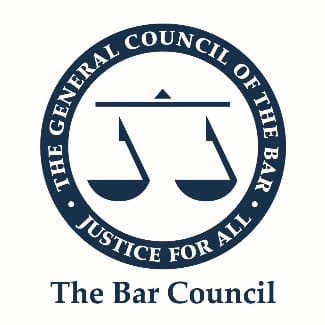Tsvetkov v Khayrova [2023] EWFC 130 and [2023] EWFC 131 (costs)
Judgment date: 04 August 2023
https://caselaw.nationalarchives.gov.uk/ewfc/2023/130
Costs: https://caselaw.nationalarchives.gov.uk/ewfc/2023/130
Peel J. Final Hearing of H’s Financial Remedy application.
The parties were born in Russia. The parties hold Russian, UK and Cypriot passports. H is 42 and W is 36. They have two minor children. They were married in 2009 and separated in September 2020.
The parties' wealth was generated by H’s endeavours in the following areas:
- Advising high net worth individuals.
- Trading jewellery, watches, and diamonds.
- Selling art.
- Involvement in a Russian coalmine from 2016 (Stirakia). H received some £100m between 2016 and 2020 from this venture.
The judge found the assets to be in the region of £48.5m comprising of cash, investments, property, business interests and chattels in the UK, Cyprus and Dubai. From 2011 onwards, all assets were held in W’s sole name to protect against H’s various creditors. H’s open position was that there should be a 60/40 split in his favour (£19m to W and £29m to H) on account of W’s conduct. W’s position was an equal split (£24m each).
Conduct and disclosure issues
- W gave repeatedly false evidence about the location of valuable jewellery she had removed from a safety deposit box and not disclosed. This necessitated H making various court applications including joining a third party. W ultimately agreed that to an add-back of nearly £7.5 million in respect of some of these and the judge found she had access to the remainder. W was also shown on Instagram wearing other items of jewellery which she had claimed H had taken. This resulted in attribution to her of a further £400,000 worth of items. W originally claimed that she had 20 handbags but it became clear there were at least 150. The judge attributed a value to these of £797,500.
- Much of H’s work derived from his relationship with the Magdeev family, but the breakdown of this relationship resulted in ongoing legal proceedings. H was concerned that W may ‘make mischief’ in the litigation. Notwithstanding an undertaking not to disclose financial info or documents to them, W entered into an agreement with the Magdeevs to assist them and provide documents in return for the Magdeevs paying her FR costs. The judge said the steps W took were deplorable and her undertaking was ‘specious and dishonest’. W acknowledged that any claims arising from the agreements should fall at her door.
- In November 2019, a criminal complaint was issued against H in Russia in relation to various business transactions between 2011–2014 and an international arrest warrant issued. A friend of H’s, Mr D, allowed H to use a bank account in Dubai in Mr D’s name to meet his outgoings. The bank later told Mr D that they had received anonymous messages about activity with third parties on Interpol’s list and that use of the accounts would be stopped. The judge concluded there was no demonstrable loss as a result of W’s (‘appalling’) behaviour but that this would be factored into his decision on costs. In closing submissions, H’s counsel also sought to assert H had lost income of c. £2.5m since June 2022 due to his loss of access to financial institutions which was a direct consequence of W’s actions. The judge refused to deal with this ground as it had not been properly pleaded. However, after H’s access to the Dubai bank account was withdrawn, Mr D funded H’s costs personally, meeting costs of c. £1.1m. The judge accepted that this sum needed to be repaid.
- W denied that she had been offered $10 million for some shares, but W denied it. She later sold the shares for $7.5m and H asserted a loss of $2.5m. The judge found that this was not made out.
- The parties agreed to liquidate £2m of their £10 million investment portfolio to reduce interest on a £25 million mortgage. The liquidation occurred but W refused to allow this to be applied to the mortgage meaning the sum no longer generated an income and there was no reduction in mortgage interest. H said the loss was c. £130,000. The judge was not satisfied that this reached the threshold for conduct and felt that the amount was trivial in the context of almost £50m, however it may impact costs.
For a detailed discussion of Peel J's guidance in this case on how conduct issues are to be case managed, please see our accompanying blog by Nicholas Allen KC and Harry Campbell.
Outcome
Unsurprisingly given the assets, there was little focus on needs. W’s budget, excluding mortgage repayments was £1.344m per annum. H’s budget was £1.645m per annum of which £656,000 related to security, as advised by the police.
The judge ordered that there was to be an equal division of assets. The parties should also share any tax liability equally and bear the decision of the Cypriot litigation equally.
The judge did not consider a 60/40 division as advocated by H to be fair and emphasised that he had added back funds that he found W to hold but that she had not disclosed. The correct way to penalise W was in costs.
The judge ordered:
- W was to retain the London flat (£11.5 million and H was to retain the Surrey property £25 million). Both parties were to discharge the proportionate share of the mortgage, absent which their property would be sold. All other London properties were to be sold and the proceeds divided equally. W was to retain all properties in Cyprus save for one, which H was to retain.
- All preserved jewellery to W.
- H to pay W a lump sum of £5,515,312 within 9 months
- W will be liable for 50% of H’s tax liability and vice versa (at worst, the tax liability will be £20m).
- The parties shall shoulder the benefit/burden of the Cypriot proceedings equally but H to pay the costs of this litigation.
- W must repeat her confidentiality undertaking.
- The oldest child’s bank account (containing £2.1m) to be used for school fees.
- H was to pay child maintenance of £50,000 per child per annum.
- A clean break upon implementation. The judge said there was no justification for adjourning W’s claims until the tax liability was known. The judge considered that she would still be able to meet her needs on a worst case scenario (i.e. she was liable for £10m of tax) and that an adjournment would likely lead to further litigation.
Publication and anonymisation
Both parties sought that the judgment be anonymised. The judge did not permit this, whilst acknowledging that the authority in this area is currently uncertain.
The judge gave the following reasons:
- The litigation misconduct of W was of the utmost gravity and it is in the public interest to be aware that one party has abused the system in such a way.
- Much is already known about the circumstances of this family given a previous published judgment in the Magdeev ligitation, a dispute over chattels in the QBD in 2021; and a dispute with a garden company in 2022 which was reported in the national press.
- There have been attempts on H’s life which is a matter in the public interest.
- H has previously given revealing interviews to the Daily Telegraph and Daily Mail.
- The public is entitled to know H has not paid a penny of UK tax or filed a tax return since his return to the UK in January 2018.
- It is hard to see how anonymisation would realistically work.
The costs judgment
The total costs were over £3.1m. The judge commented that the case had been ‘infected by W’s dishonesty from start to finish’. The judge acknowledged that H had overplayed his case at points and had failed on a number of his conduct grounds. However, on balance, the judge found that W carried greater responsibility.
W was ordered to pay 50% of H’s costs which totalled £1,761,488. The judge deducted a notional 15% on an indemnity basis, resulting in a costs liability of £748.632. 50% of this sum was to be paid forthwith with the balance offset against the lump sum owed by H.







